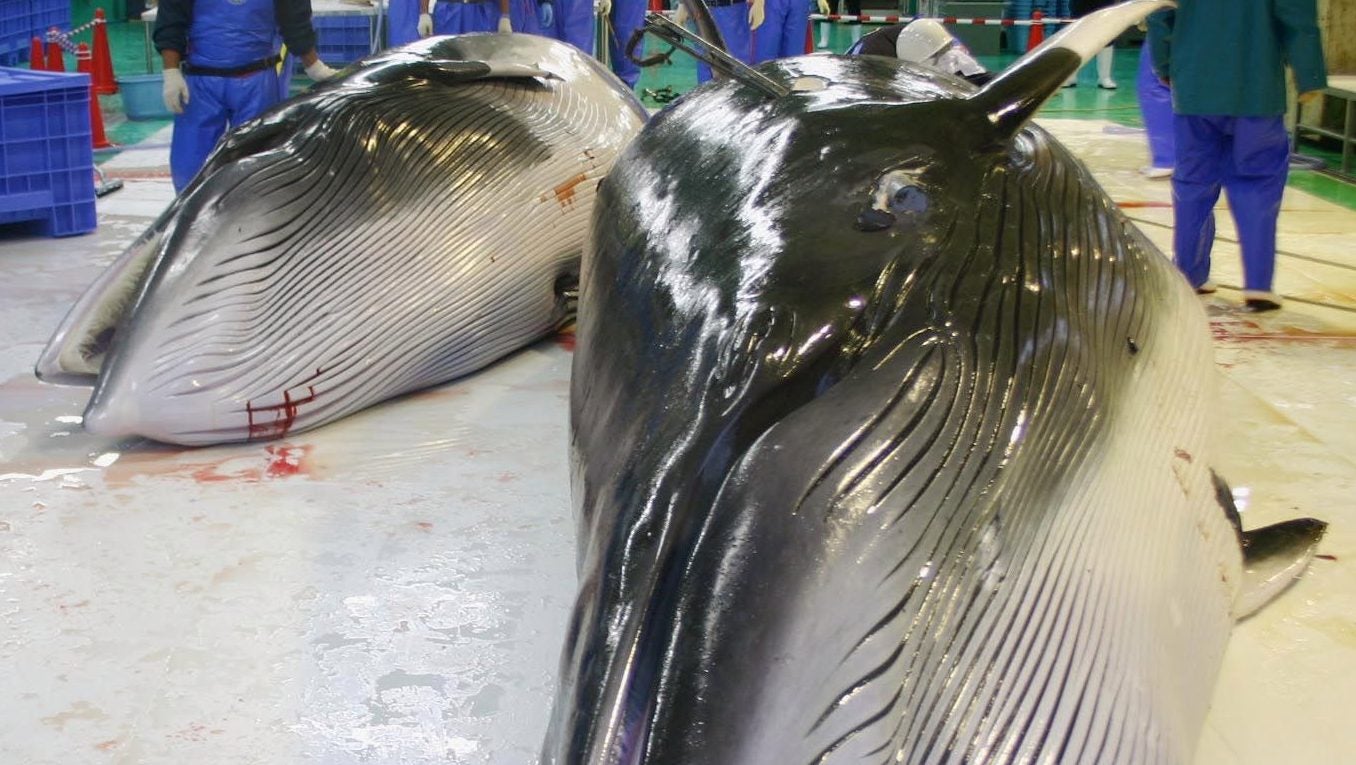Japan has long hunted whales “for science.” Now it will hunt them commercially
Whales will once again be commercially hunted in Japan’s waters, the country’s chief cabinet secretary Yoshihide Suga announced today (Dec. 26).


Whales will once again be commercially hunted in Japan’s waters, the country’s chief cabinet secretary Yoshihide Suga announced today (Dec. 26).
Japan intends to resume commercial fishing in July by leaving the International Whaling Commission (IWC), an agreement among dozens of countries that put a moratorium on commercial whale hunts starting in 1986. Japan joined the IWC in 1951.
However, Japan has continued killing whales, particularly in the waters surrounding Antarctica, under the guise of scientific research. Whale hunts for scientific research—and the sale of whale meat from research kills—is allowed under the agreement. Japan set itself a quota of 333 minke whales a year in the Antarctic. In the 2017-18 hunting season that included killing 122 pregnant females, the New York Times notes.
The Japanese whaling industry supports fewer than 1,000 people, and whale meat is far less popular in Japan today than it has ever been. But the country has continued to support whaling, ostensibly for science, through government subsidies, because the profit from selling the “research byproducts” has failed to cover costs in recent years. In 1962, people in Japan ate more than 233,000 tons of whale meat. By 2016, they ate just 3,000 tons, according to government statistics reviewed by the New York Times.

Upon withdrawal from the agreement, Japan will cease hunting whales off Antarctica and only kill whales within its own waters.
Suga blamed the IWC for Japan’s departure, because, he said, it prioritized whale conservation without developing a sustainable whaling industry. “Regrettably, we have reached a decision that it is impossible in the IWC to seek the coexistence of states with different views,” Suga said in a statement.
Whales are highly intelligent creatures, who communicate, play, and work together with each other for mutual benefit. Their brains (and the brains of other cetaceans, like dolphins) are large relative to their body size, and researchers believe they developed this large brain for much the same reasons that humans’ brains grew larger over time: to accommodate complex social behaviors.
Norway and Iceland are the only other two nations that hunt whales commercially.
“By leaving the International Whaling Commission but continuing to kill whales commercially, Japan now becomes a pirate whaling nation killing these ocean leviathans completely outside the bounds of international law,” Kitty Block, the president of Humane Society International, a non-profit organization that advocates for animal welfare, said in a statement.